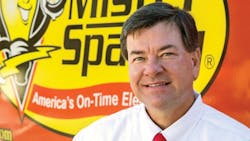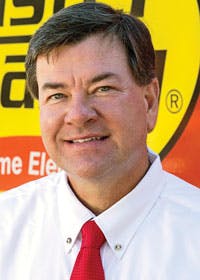Service Secrets: The Standard That Most Electricians Don’t Know About
Most electricians in our industry aren’t familiar with a valuable inspection standard — NFPA 73, Standard for Electrical Inspections for Existing Dwellings. This Standard was developed in 1990, with the first edition published in 1994.
While NFPA 70, National Electrical Code (NEC) was doing a great job on newer homes, something was needed for older homes. Studies indicated fires and other hazards attributed to electrical causes would be greatly reduced if electrical systems were installed and maintained in accordance with NFPA 70.
NFPA 73 was designed by the united efforts of insurance, electrical, construction, utility, and other allied interests. The guidelines in the current edition of NFPA 73 were also aided by the Fire Protection Research Foundation, which conducted a study on 30 homes. These homes (originally constructed from 1892 to 1972) were dismantled and investigated for potential electrical fire hazards. Hazards identified included incorrect conductor insulation for luminaires, improper grounding, improper receptacle wiring, and multiple conductors terminating on a single terminal.
Related
Equally, older homes just require more attention to detail where years of lightning strikes, freezes, floods, tornadoes, home additions, subcontractors, and DIYers may have put consumers unknowingly at risk. If you’re an electrician doing residential service, you must get your own copy of NFPA 73 and study it.
Keep these areas of the standard in mind when running service calls:
- Integrity of Electrical Equipment and Connections (4.1.4): “Internal parts of electrical equipment, including busbars, wiring terminals, insulators, and other surfaces, shall not be damaged or contaminated by foreign materials such as paint, plaster, cleaners, abrasives, or corrosive residues.” When checking a panel, make sure no paint or anything else is on the interior of the panel. Note: You can’t remove paint by scraping or using a chemical.
- Service Equipment Grounding (4.2.9.1): “Service equipment shall be grounded.” Check the service grounding and make sure it’s correct. Look at the service equipment and meter base, and determine if the grounding is proper.
- Panelboards and Distribution Equipment (4.3.2): “Panelboards and distribution equipment shall not show evidence of physical damage, overheating, corrosion or other deterioration.” If you find a panel that’s rusted, corroded, or has burnt bus bar(s) or burnt breaker(s), you must show the homeowner. Some electricians will install a new breaker on a “good area” of a burnt bus bar, but don’t do this! You can’t clean or sand a bus bar to make a good connection either. The panel should be properly repaired or replaced per NFPA 73 recommendations.
- Conductor Terminations and Splices (4.5.3): This section applies to the proper termination at panelboards, devices, and boxes. Check for double lugging issues, box connectors, and improper splices. You can tell if the home is wired properly with a few simple checks.
Operating as a service and repair electrician is different than working in new construction. You must embrace the mentality of doing what is best for the customer in the long run. Always check to see if the home is safe. Check that the panel, grounding, receptacles, etc. have no problems. The NFPA 73 Standard was written for a reason: to save lives.
Wise holds an A.S degree in Electrical Engineering and is licensed in N.C., S.C., and Virginia. In addition to being a college electrical instructor, N.C.-licensed real estate broker, and former NASCAR race car driver, Wise owns and operates Mister Sparky in Charlotte and Cherryville, N.C. He can be reached at [email protected].
About the Author
Rusty Wise
Rusty Wise holds an A.S degree in Electrical Engineering and is licensed in N.C., S.C., and Virginia. In addition to being a college electrical instructor, N.C.-licensed real estate broker, and former NASCAR race car driver, Wise owns and operates Mister Sparky in Charlotte and Cherryville, N.C.

